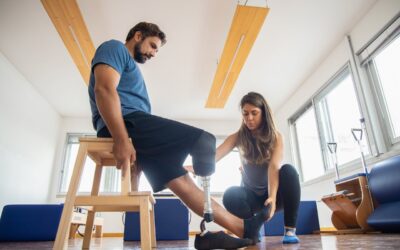Building social connections is not just a part of life; it’s a vital element of our well-being as human beings. The quality of our social connections can influence everything from our mental health to our physical health, significantly impacting our overall sense of belonging and happiness. For individuals with disabilities, forming and maintaining these meaningful relationships can be challenging.
This is where NDIS (National Disability Insurance Scheme) Support Coordination steps in, acting as a crucial bridge to deepen social connections and foster meaningful relationships.
In this comprehensive guide, we’ll explore how NDIS Support Coordination can assist participants in forming, maintaining, and strengthening social ties, enhancing their overall well-being, and improving their quality of life.
Whether you’re an NDIS participant, a family member, or a caregiver, this guide is designed to provide you with the tools and insights you need to understand the pivotal role of NDIS Support Coordination in building social connections.
What is NDIS Support Coordination?
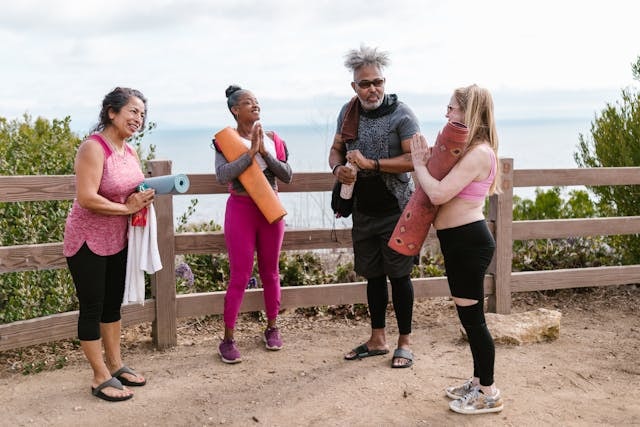
NDIS Support Coordination is a service designed to help NDIS participants understand and implement their NDIS plan, ensuring they get the most out of their funding and achieve their goals.
Support Coordinators work closely with participants to connect them with the right services, build their capacity to manage their supports independently, and navigate the complexities of the NDIS system.
The Role of Support Coordination in Building Social Connections
One of the key roles of NDIS Support Coordination is to assist participants in building social connections. Spending time with others is crucial for nurturing social skills and building meaningful relationships. Support Coordinators help participants identify opportunities to engage with their community, form friendships, and strengthen existing relationships. This might involve joining social groups, participating in community activities, or finding new hobbies that align with their interests and abilities.
Why Are Social Connections Important?
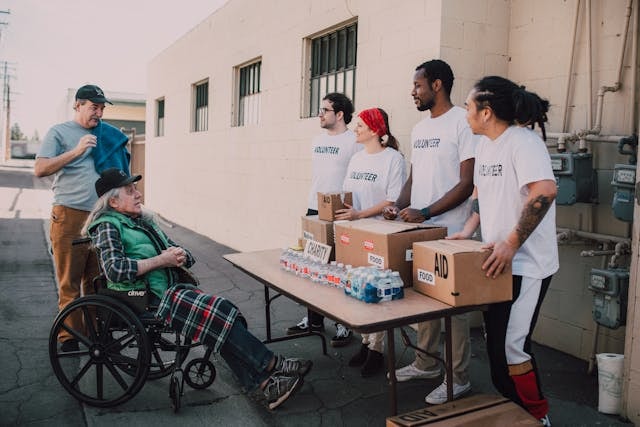
Social community connections are crucial for everyone, but they hold particular significance for individuals with disabilities. Social connectedness and strong social relationships have been linked to numerous health benefits, including improved mental health, better sleep patterns, lower blood pressure, and a stronger immune system. Furthermore, stable relationships provide emotional support, reduce feelings of loneliness, and enhance overall life satisfaction.
The Impact of Social Connectedness on Mental and Physical Health
Research has shown that deep connections and meaningful social connections can have a profound impact on both mental and physical health. For instance, people with strong relationships tend to have lower rates of depression and anxiety, as well as a reduced risk of developing chronic illnesses.
Conversely, those who feel lonely or isolated are more likely to experience a decline in both physical and mental health. For more on this, you can read the Australian Institute of Health and Welfare’s report on social determinants of health.
Support Coordinators play a vital role in helping participants overcome these challenges by facilitating connections that lead to a more fulfilling and healthy life.
How NDIS Support Coordination Enhances Social Connections
Identifying Opportunities for Social Engagement
One of the first steps in building social connections is identifying opportunities for engagement. Support Coordinators assist participants in finding activities and groups that match their interests, such as a book club, volunteering opportunities, or joining a local community group. These activities not only provide a sense of belonging but also offer a platform for participants to meet new people and form friendships.
Facilitating Community Involvement
Spending time in community involvement is a key aspect of building connections. Support Coordinators encourage participants to spend time in social situations where they can interact with others, such as attending local events, participating in community programs, or simply spending quality time with family and friends. By being actively involved in their community, participants can strengthen their social skills and build a network of support. You can find more about community involvement through Volunteering Australia.
Strengthening Existing Relationships
While building new connections is important, maintaining and strengthening existing relationships is equally crucial. Support Coordinators help participants nurture these relationships by providing strategies to stay connected with family members, old friends, and co-workers. This could involve regular check-ins, setting up video calls, or planning activities together to ensure that these relationships remain strong and supportive. For tips on maintaining relationships, check out Beyond Blue’s resources on maintaining social connections.
Overcoming Challenges in Building Social Connections
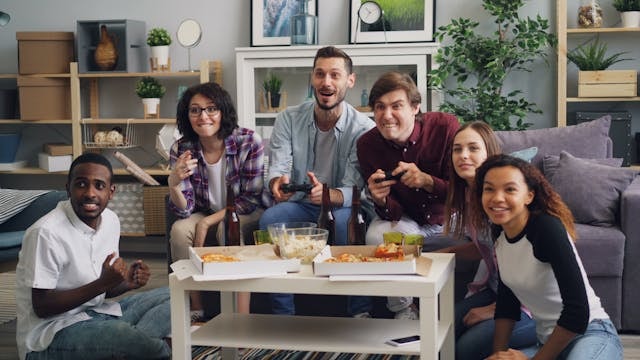
Building social connections can come with its own set of challenges, particularly for individuals with disabilities. These challenges might include physical barriers, communication difficulties, or social anxiety. However, with the right support, these obstacles can be overcome.
Addressing Physical Barriers
Physical barriers, such as limited mobility, can make it difficult for participants to engage in social activities. Support Coordinators work with participants to find accessible venues and activities that accommodate their needs, ensuring that physical limitations do not hinder their ability to connect with others. The Australian Network on Disability provides valuable resources on accessibility.
Improving Social Skills
For some participants, social situations can be overwhelming due to a lack of social skills or confidence. Support Coordinators can provide guidance and resources to help participants improve their social skills, such as making eye contact, starting a conversation, and reading social cues. These skills are essential for forming meaningful connections and feeling comfortable in social settings. Resources from Raising Children Network offer excellent advice on developing social skills.
Managing Social Anxiety
Social anxiety can be a significant barrier to building connections. Support Coordinators help participants manage anxiety by gradually exposing them to social situations in a supportive and controlled environment. This might include starting with small, familiar groups and gradually expanding to larger social gatherings as the participant’s confidence grows. Headspace offers useful strategies for managing social anxiety.
Practical Tips for Building Social Connections with NDIS Support Coordination
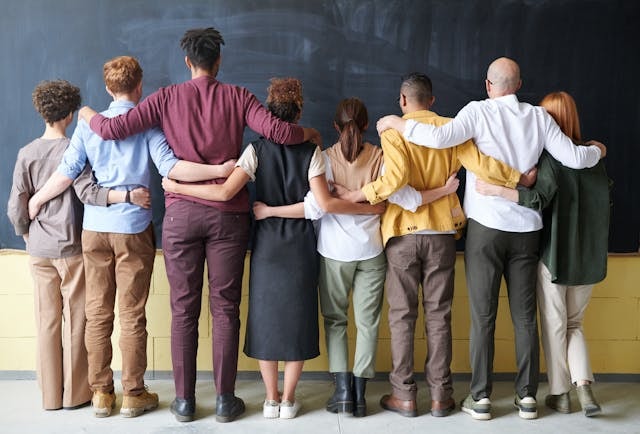
1. Set Clear Goals
Work with your Support Coordinator to set clear, achievable goals for building social connections. Whether it’s joining a new hobby group, reconnecting with old friends, or spending more quality time with family, having specific goals can help you stay focused and motivated.
2. Start Small
If you’re feeling overwhelmed by the idea of building new connections, start small. Attend a local event, join a small group, or spend time with one or two people you trust. Gradually, you can build up to larger social interactions as your confidence increases.
3. Make an Effort to Stay Connected
Maintaining social ties requires effort. Make it a priority to stay in touch with friends and family, whether through regular phone calls, video chats, or in-person visits. Even a short conversation can help strengthen your connections and provide emotional support.
4. Explore New Interests
Trying new activities is a great way to meet people and form new friendships. Ask your Support Coordinator to help you explore new hobbies or interests that you might enjoy. Whether it’s joining a sports team, taking up a new hobby, or volunteering in your community, these activities can open up new opportunities for social engagement.
5. Seek Emotional Support
Building social connections can be challenging, and it’s important to have emotional support along the way. Your Support Coordinator can connect you with counsellors, support groups, or other resources that provide the emotional backing you need to navigate social challenges.
The Long-Term Benefits of Building Social Connections
Investing time and effort into building social connections pays off in the long run. Participants who engage in meaningful relationships often report higher levels of happiness, better health outcomes, and a stronger sense of belonging. These connections not only improve your quality of life but also contribute to a more resilient and supportive community.
Strengthening the Community
When individuals are connected to their community, everyone benefits. Social ties help create a sense of unity and support within the community, making it a safer and more inclusive place for everyone. By building and maintaining strong relationships, participants contribute to the overall health and well-being of their community.
Conclusion: The Power of Building Social Connections
Social connections are a vital part of life that can significantly impact our health, happiness, and sense of belonging. For NDIS participants, building and maintaining these connections can be challenging, but with the help of NDIS Support Coordination, it’s possible to create and nurture meaningful relationships that enhance well-being and improve quality of life.
Whether you’re seeking to form new friendships, strengthen existing relationships, or simply feel more connected to your community, NDIS Support Coordination is your key to unlocking the benefits of social connectedness. With the right support, you can overcome the challenges of loneliness, build a strong network of social ties, and enjoy the many benefits that come with feeling connected and supported.
FAQs:
1. How does NDIS Support Coordination help in building social connections?
NDIS Support Coordination assists participants by connecting them with community activities, social groups, and resources that help them form and strengthen social ties, enhancing their overall well-being.
There are other support services which are good to engage in to help improve your life.
2. Why are social connections important for NDIS participants?
Social connections are crucial for improving mental and physical health, providing emotional support, and fostering a sense of belonging, which is particularly important for NDIS participants.
3. What challenges might NDIS participants face in building social connections?
Participants may face challenges such as physical barriers, social anxiety, and communication difficulties. NDIS Support Coordinators provide strategies and resources to overcome these challenges.
